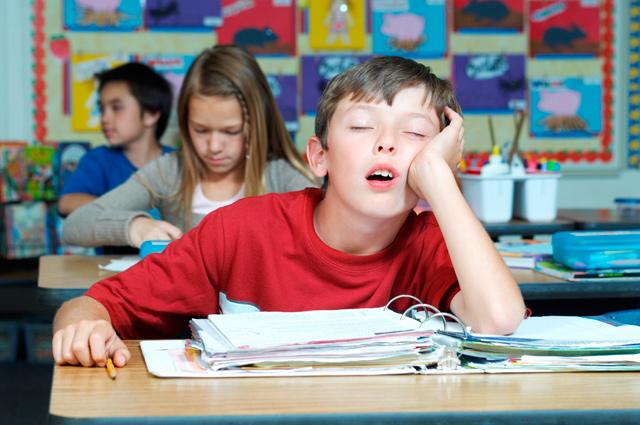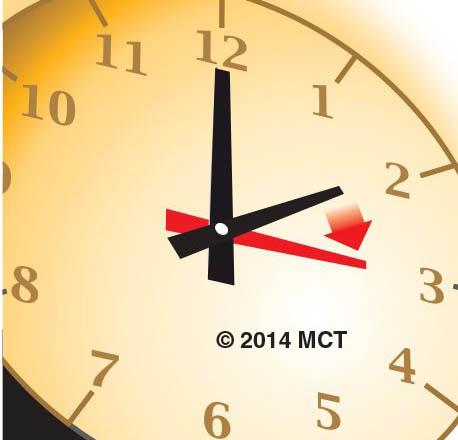You are here
California legislates more sleep for better health
By Kaiser Health News (TNS) - Nov 02,2019 - Last updated at Nov 02,2019

Photo courtesy of ratemds.com
By Mark Kreidler
Teenagers don’t get enough sleep, and California’s effort to fix the problem may serve as a wake-up call to other states’ lawmakers.
A law recently signed by Gov. Gavin Newsom that mandates later start times for most students — no earlier than 8am in middle school and 8:30am in high school — is the first statewide response in the United States to overwhelming evidence that chronic lack of sleep impairs teens.
But it is hardly the only attempt to address the issue.
Individual cities, regions and school districts across the US have tried for years to afford their students the sleep benefits of later school starts.
Their efforts are just one aspect of a broader societal phenomenon so harmful that the Centres for Disease Control and Prevention declared it a public health epidemic five years ago. Simply put, a staggering number of Americans — or, better said, a number of staggering Americans — don’t get enough sleep.
There is no simple way to alter that reality, a reminder of which will be heard early in the morning on Sunday, November 3, as Daylight Saving Time ends, bringing with it the usual spate of sleep-related complications.
Last November, nearly 60 per cent of California voters backed a ballot proposition to end twice-a-year clock changes, in part because of the havoc they wreak on sleep. State legislators followed with a bill to put California on permanent Daylight Saving Time.
It passed the Assembly earlier this year but is now on hold until 2020. Assemblyman Kansen Chu, D-San Jose, who introduced the legislation, said he wanted more time to explore the option of going on permanent standard time.
Only two states — Arizona and Hawaii — do not move their clocks every spring and autumn. Both abandoned the system in the late 1960s, noting that their residents receive plenty of sunlight year round.
Other states, including Minnesota, Florida and several more, have considered legislation to remain on Daylight Saving Time year-round. Oregon already passed a law to do so. But since legislators there wanted all the clocks on the West Coast showing the same time, their law is on hold until Washington and California do the same.
And to make the problem even more complicated, any state that jettisons biannual clock changing still needs approval from Congress.
The specifics of California’s new school law reflect the complexity of any kind of change to the sleep patterns of Americans. The bill exempts some of the state’s rural districts, makes allowances for optional “zero period” early classes, and is being phased in over three years.
A bill with similar provisions was rejected by lawmakers in 2017 and vetoed by then-Gov. Jerry Brown in 2018. Critics say local communities and school boards should be able to decide their own start times. And they argue that the law will disproportionately affect lower-income families, who cannot alter their morning work schedules to accommodate later rides to school — though some lucky parents may be able to get more sleep.
The momentum toward later starting times for students, who researchers say need close to nine hours of sleep a night, has been gathering for some time. And research in places that made the change has shown it is beneficial to students.
Many schools in the Minneapolis area moved back high school start times 20 years ago and found that students were generally more alert, less stressed and less likely to fall asleep in class.
In Kentucky’s Jessamine County, a 2002 switch from 7:30am to 8:40am for high school students had several immediate effects, among them increases in attendance and standardised test scores. Seattle in 2016 moved to an 8:45am start, nearly an hour later than the previous one; it has resulted in students getting more than a half-hour of extra sleep, according to research. Portsmouth, New Hampshire, schools also moved to later start times the same year.
And there is some momentum at statewide levels, too. Days after Newsom signed the law, a legislator in Ohio introduced a bill that no school start before 8:30am — though its author was less concerned with sleep than with early-morning safety issues. Lawmakers in Indiana, South Carolina and New Jersey are also among those studying later start times.
The movement may ultimately make economic sense: Moving the first bell to 8:30am across America’s middle and high schools could add $9.3 billion to the economy in the next year and $83 billion over a decade — all because of improved sleep, health and mental acuity, according to a study by the Rand Corp., the Santa Monica., California-based think tank.
Well-established scientific research draws a direct line between less sleep and health — not just for developing adolescents, but for adults, too.
“The shorter your sleep, the shorter your life,” University of California-Berkeley neuroscientist and sleep expert Matthew Walker wrote in his best-selling book, “Why We Sleep”.
Despite this knowledge, however, “the trend is going the other way”, said Aric Prather, associate professor of psychiatry at UC-San Francisco, who studies and works with patients on sleep-related problems.
The number of Americans who say they don’t get even the minimum recommended seven hours of sleep per night has increased significantly since 2013, and nearly one-third of Americans now say they sleep six hours or less.
Chronic sleep disruption has been linked to a weakened immune system, low sex drive, loss of memory, increased likelihood of Type 2 diabetes, heart disease and impaired thinking, as well as higher risks of accidents, obesity, loneliness and low-grade depression.
Put it together, and those who habitually get too little sleep are going to wind up with shorter, unhappier lives.
It’s enough to keep you up at night.
Related Articles
AMMAN — Following the Education Ministry’s announcement of revised school hours, parents are continuing to advocate for the implementation o
Switching over to Daylight Saving Time, and losing one hour of sleep, raised the risk of having a heart attack the following Monday by 25 per cent, compared to other Mondays during the year, according to a new US study released on Saturday.
If you thought trying to get a groggy teenager out of bed in time for school each morning was your own private struggle, you thought wrong.


















